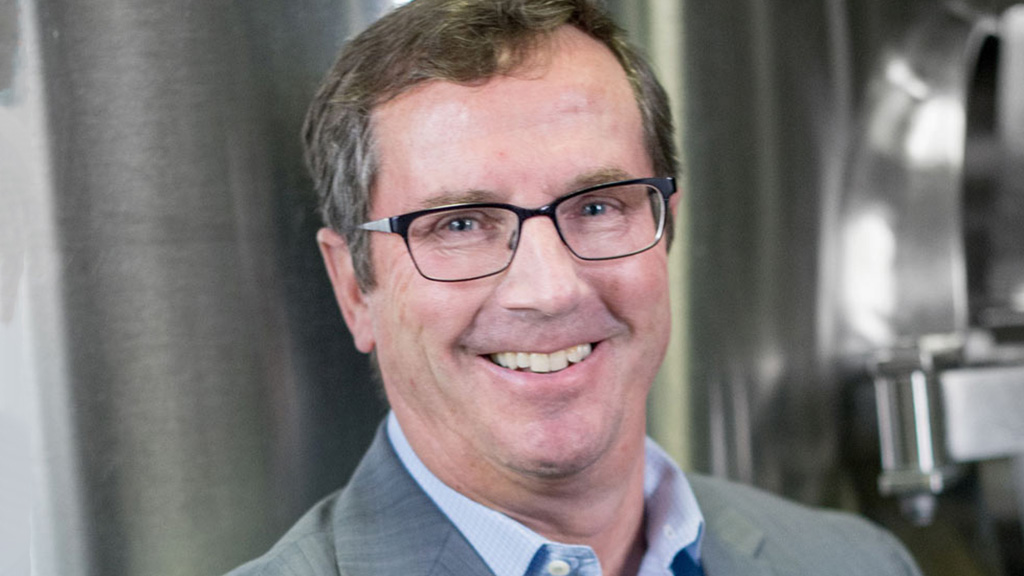Pease was a key force in boosting craft beer industry revenue, confidence
Pragmatic lobbyist Bob Pease transformed finances, persuaded small brewers to embrace advocacy at the federal level
- November 6, 2024 |
-
 RHONDA SMITH
RHONDA SMITH

Although Bob Pease has spent his last 30-plus years working in Colorado, first at a ski resort and then for the craft beer industry, his career has involved much more than fun and games.
Pease, who is slated to retire in early 2025 as the CEO of the Boulder, Colorado-based Brewers Association, played key roles in creating the nonprofit group’s Export Development Program — an initiative that helps U.S. brewers expand internationally — and a federal law that resulted in an annual tax savings for brewers of over $80 million.
More than once, politics news publication The Hill has named Pease one of the top lobbyists in the nation’s capital.
“I’m most proud of leaving my successor with a solid financial position from which to operate,” he told CEO Update. (Kittleman & Associates is leading the search for his replacement.)
Craft brewer defined
The Brewers Association represents 5,200-plus small and independent U.S. craft breweries and 29,000 homebrewers. The organization says a craft brewer is “small and independent,” and “small” means annual production of 6 million barrels of or less. Craft brewers account for about 3% of U.S. annual sales; homebrewers create beer for personal consumption.
Innovation is the hallmark of craft beer, the group’s website notes. While craft beer generally is made with traditional ingredients like malted barley, craft brewers often interpret historic styles with different twists, sometimes using nontraditional ingredients.
Bob Pease up close
Pease, 62, has held five progressively responsible jobs at the Brewers Association since 1993. They range from customer service manager and operations director to vice president, chief operations officer and, since 2014, CEO.
“When I became vice president of the association in 1999, we had no money in reserves and over $400,000 in accounts receivable, all 90 days past due,” Pease said. “We were in serious financial jeopardy. But my colleagues and I were able to right the ship financially and get the association to break even. By the early 2000s, we were on our way to being on solid ground, economically.”
The association reported revenues of $22.9 million last year. Its net assets amounted to $27.4 million, and salaries and benefits totaled $8.5 million.
A key strategy to boost the organization’s bottom line involved consolidating employee duties and placing the best and brightest workers in leadership roles, Pease said.
Today, the Brewers Association has 57 full-time employees and an 18-person board of directors.
“I’ve played competitive team sports, and in business there are parallels,” Pease said. “The team is stronger when you have more people rowing in the same direction.
“So, I assemble a good team. I hire people smarter than myself and let them do what they were hired to do,” he said. “And I get out of their way.”
Pease, who majored in political science at the University of Colorado Boulder, also connects easily with people willing to share their knowledge.
This proved helpful at the Eldora Mountain Resort, near Boulder, where he worked after college as the director of lodge operations. In that role, Pease, an avid skier, managed food, beverage, retail and ticket services.
“I had leadership skills but not hard business skills,” he said. But working at the ski resort, Pease said he learned “how to hire and fire employees, read profit and loss statements, and manage resort operations.”
After working for four years at Eldora, Pease was ready for a change. In 1993, he applied for a customer service manager position at what would eventually become the Brewers Association, which was established in 2005, when the Association of Brewers and the Brewers’ Association of America merged to more effectively represent the interests of small and independent U.S. brewers.
“Bob worked his way up,” Charlie Papazian, one of Pease’s mentors and a past president of the trade group, told CEO Update. In 1978, Papazian founded the American Homebrewers Association, which is now a division of the Brewers Association.
“He was a practical person, able to make more difficult decisions regarding managing people than I had been,” said Papazian, who is now retired, though still recognized in the craft beer industry as the “Godfather of Homebrewing.”
“He was responsible and enthusiastic and took the role pretty seriously,” Papazian said, noting that Pease even attended a craft brewing school for special training after he joined the association.
Triumphs and challenges
Looking back on his accomplishments at the Brewers Association, Pease described a major legislative victory that resulted in passage of the Craft Beverage Modernization and Tax Reform Act of 2019.
“When I first started pursuing that legislation in 2009, I needed to get small brewery owners and federal lawmakers to work together,” Pease said. “But I couldn’t get (brewery owners) to come and engage in advocacy work. They would say, ‘That’s like talking to the man.’”
Eventually, brewery owners began communicating with Congress members and the lawmakers began visiting breweries nationwide. Approval of federal policies favorable to the craft beer industry followed.
Future challenges
Challenges are inevitable, Pease and Papazian said, and the Brewers Association’s next leader should be prepared for them.
“She or he will be leading a trade association that is operating in a mature market,” Pease noted.
“Craft brewing is entering a cycle where some consumers are not seeing craft beer as cool as it once was,” he said. “And consumers’ taste preferences are changing.”
There are trends toward beverages that contain fewer calories and carbohydrates, Pease said, and lower alcohol content.
Nonetheless, “I am confident that small and independent craft brewers will be able to innovate to meet the challenges,” he said.
